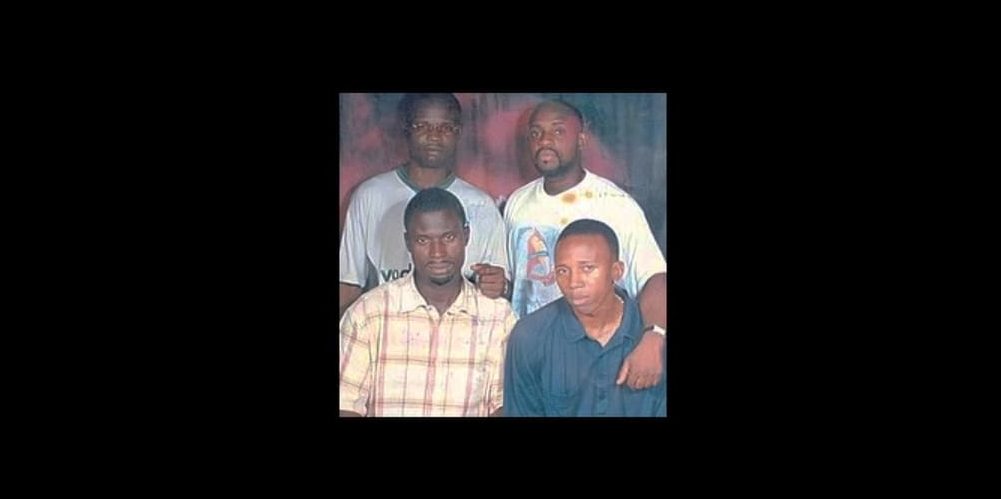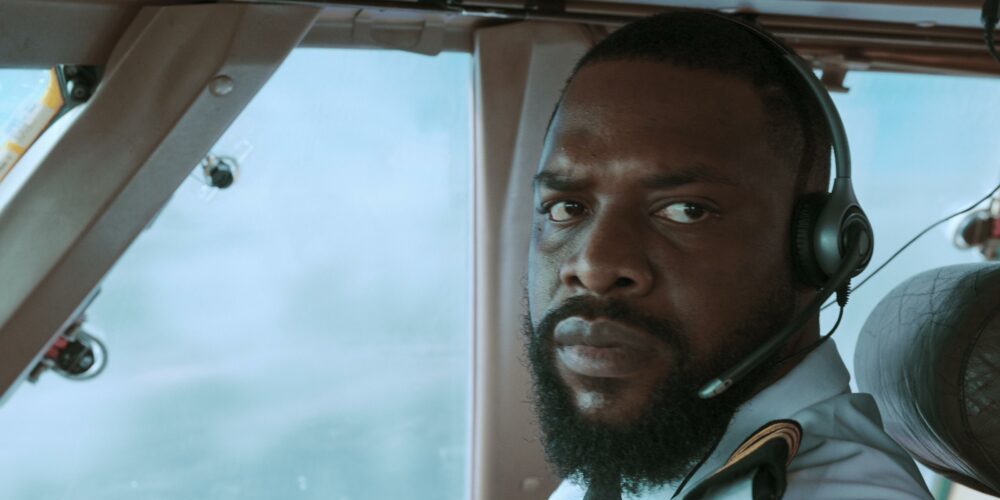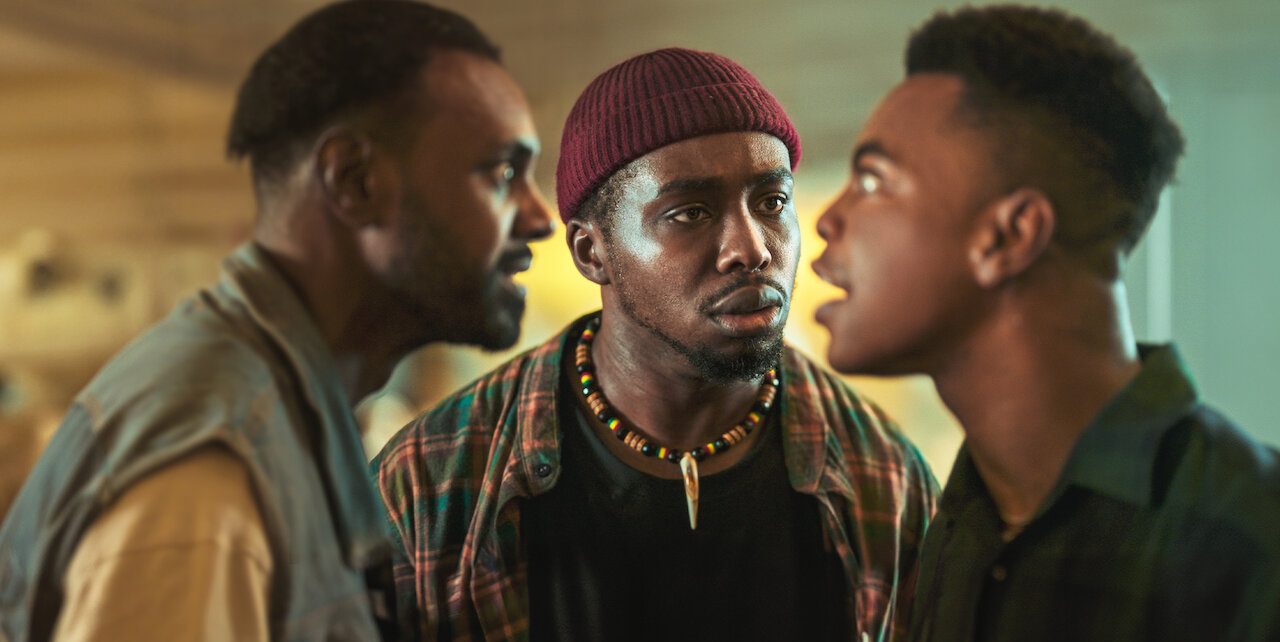Netflix’s ‘Hijack ’93’ chronicles the harrowing hijacking of a Nigerian Airways flight by four young boys who divert the plane to the Republic of Niger while taking all the passengers hostage. The movie captures the challenges faced by the kidnappers in trying to make their demands heard by the authorities and also showcases the struggles of the flight staff and crew in managing the terrible situation they are under. However, at the heart of the narrative, there is a political spirit that drives the motivations of the hijacking and also reflects some of the issues by Nigerians around the world, despite it being represented terrifyingly through the Robert Peters-directed thriller. SPOILERS AHEAD.
Hijack ’93 is a Dramatization of an Infamous Nigerian Airways Hijacking
Written by Musa Jeffery David, ‘Hijack ’93’ is a fictional story based on the October 25, 1993 hijacking of Nigerian Airways Airbus A310 by Richard Ogunderu, Kabir Adenuga, Benneth Oluwadaisi, and Kenny Rasaq-Lawal, who boarded the Abuja bound Lagos flight and hijacked it while it was in the air. The movie covers the essence of the actual events while making a few liberal, creative deviations that reinforce the terror of the situation. Some of the alterations include the addition of specific fictional plot points, changes to characters and backstory, and alterations to the names of each of the hijackers, who are given symbolic nicknames that represent their inner motivations but also dig into their past.

In reality, the hijacking was allegedly fueled by a desire to restore a democratic regime in Nigeria’s government, which was at the time under an interim rule. The hijacker’s plan initially was to take the plane to Frankfurt, Germany, which would only be possible after landing to refuel somewhere. As such, the Diori Hamani International Airport in Niamey, Niger Republic, became the intermediate destination for the teenage hijackers, who were only aged sixteen and eighteen at the time. Soon after the plane touched Niger soil, the abductors revealed to the listening passengers and crew members that the flight had been taken over by the Movement for the Advancement of Democracy. Over the next few days, intense negotiations took place between the captors and the gathered military.
The four teens demanded that their pleas for democratic leadership be heard, or they would burn down the plane in 72 hours. Brokering peace talks proved to be difficult, but some leeway was made in terms of passenger safety. Several passengers were set free, some of whom were top officials in the Nigerian government. The vice president of China, Rong Yiren, was also among them. Eventually, the armed gendarmes who had been waiting at the airport stormed the plane on October 28, 1993, and the hijackers were arrested, but reportedly not without costing the life of one crew member on board. The perpetrators were tried and sentenced to nine and a half years in prison at an arid prison in Niamey, Niger Republic.
Hijack ’93 Revisits Old Wounds to Offer a Fresh Perspective
Although ‘Hijack ’93’ covers a dark event in Nigerian history, the legacy of the actual story has been hailed by some as an act of heroism by the four hijackers who wanted to make their principles of democracy heard. Thus, the movie serves as a stark reminder of the precarious nature of politics and how people’s sufferings can lead to demonstrations of an extreme kind. To that end, it captures the general feeling brewing among Nigerians everywhere. Allison Precious Emmanuel, who plays Owiwi, described the movie’s message as “timely” and reflective of the current problems in their economy and feelings of instability. Despite being rooted in a different context, the core themes of the movie’s real-life basis and contemporary issues raging in Nigeria today align to a great degree.

Centrally, an emphasis is placed on the convictions of the four hijackers, who find themselves battling an impossible situation and a helpless cause where everything is pitted against them. A variety of flashbacks punctuate the otherwise chronological narration of the movie, offering an in-depth look into the atrocities suffered by the youthful kidnappers and what set them on their vengeful path. The need to humanize their characters justifies the personal and selfless reasons driving them on their journey to serve the so-called greater good. Whether or not it succeeds is secondary to their zeal, which Allison also insisted upon as one of the pivotal parts of the movie. “It’s a story of zeal and it’s very relevant in today’s world,” he explained.
Revisiting harsh and terrifying situations from the past is never easy, but through a dramatized version of the actual events, the movie allows itself the freedom of detachment, building a layer of separation from its original basis. It aids in viewing the film as an entity with its own ideas, themes, and messages to impart. Oluwaseyi Akinsola, who plays the hijacker Iku, said, “This film challenges us to look at our history and ask ourselves, ‘How far have we come?'” There is an underlying notion of being trapped in a cycle of violence embedded within the narrative framework of ‘Hijack ’93.’ While it may walk into some predictable and well-treaded grounds, for large parts, it manages to be a story rooted firmly in the Nigerian collective consciousness.
Read More: Hijack ’93: Is Lee Zhang Based on a Real Chinese Ambassador’s Son? How Did He Die?


You must be logged in to post a comment.